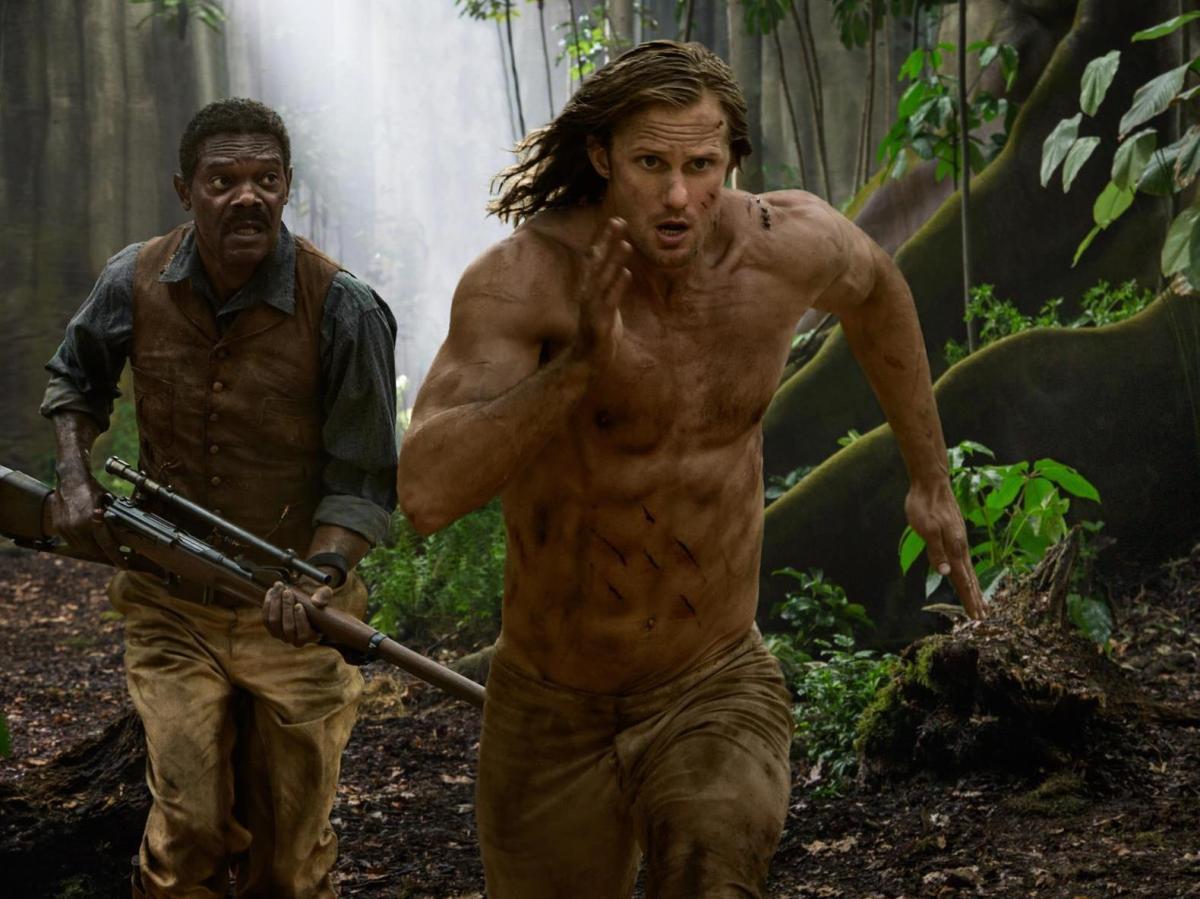Taking on the iconic role that is Tarzan, Alexander Skarsgård brandishes a pensive expression. His look is smouldering, and says as much with a stare as with his seldom-spoken words, as fans of his work in television’s True Blood have come to not just recognise but expect. Indeed, Skarsgård’s approach might seem restrained for a character first committed to the page by author Edgar Rice Burroughs back in 1912, brought to the screen more than a hundred times over the subsequent century, and known to unleash a powerful yodel as he swings from the trees in the depths of the jungle. In The Legend of Tarzan, however, it provides a suitably moody and brooding counterpoint to the eventful sights and antics that surround him.
Directed by seasoned Harry Potter helmer David Yates (a veteran of that franchise’s final four instalments) and written by Adam Cozad (Jack Ryan: Shadow Recruit) and Craig Brewer (2011’s Footloose remake), The Legend of Tarzan doesn’t just try to retell a tale oft told before but with the benefit of today’s special effects to bring its wild wonders to life. Courtesy of a script that leans on the injustices of colonial times, weaves in real-life American soldier, historian, and traveller George Washington Williams (Samuel L. Jackson), and treads carefully around several layers of race relations, it also endeavours to see a classic story through contemporary eyes.
Rather than relate a linear chronicle of the titular figure’s Congo-based childhood in the care of animal protectors, and his subsequent introduction into the world of humans after falling for the kindly but feisty Jane (Margot Robbie, Whiskey Tango Foxtrot), this take on the narrative picks up the thread of his life as John Clayton III, aka the Viscount Greystoke. Settled in England and reluctant to leave, he nonetheless dispatches back to Africa to oversee development in the area at the invitation of Belgium’s King Leopold. While Williams has a hand in convincing him to go, as does Jane’s desire to return home, it’s Flemish right-hand man Leon Rom (Christoph Waltz, Spectre) who actually masterminds the situation. Seeking a deal with local Chief Mbonga (Djimon Hounsou, Wayward Pines), he agrees to deliver Tarzan to him in exchange for a horde of diamonds.
Flashbacks, somewhat spottily placed throughout the main timeline, flesh out the details many a movie has covered before — not that they’re the main attraction here. In line with its designs to be seen as a modern translation of an old-fashioned adventure, The Legend of Tarzan endeavours to splice together the best of both: the lively tone and the spectacular sights first and foremost, as stressed by rushing through exposition and favouring slow-motion shots when it comes to combat, and coupled with an interrogation of just what Tarzan represents, and why, as well. The combination aims to be as complex as such a blend implies, particularly when it comes to cautiously unpacking the character’s mythic status in relation to Africa’s indigenous inhabitants while still rendering him superhero-like in his physical bouts and feats. It rarely pays off the way Yates, Cozad and Brewer may have planned, but their attempt proves more interesting than the film otherwise ought to.
It’s little wonder, then — and increasingly apt, too — that Skarsgård remains ostensibly muted as so much goes on around him. He’s not just playing his often-shirtless part, or embodying a figure with a long past; he’s providing canvas for a changing interpretation. His co-stars add more flair (including the underused Robbie in a supposedly empowered but still thankless love interest, Jackson having fun shooting guns and spouting one-liners as the sidekick, and Waltz turning in what has becoming his over-exaggerated norm), and yet it is still his leading performance that stands out. Like the film, he’s hardly more than adequate and workmanlike, but he fits this intermittently intriguing effort to revisit and re-chart well-worn territory.
Rating: 2 ½ stars out of 5
The Legend of Tarzan
Director: David Yates
USA, 2016, 109 mins
Release date: 7 July 2016
Distributor: Roadshow
Rated: M
Actors:
Director:
Format:
Country:
Release:





